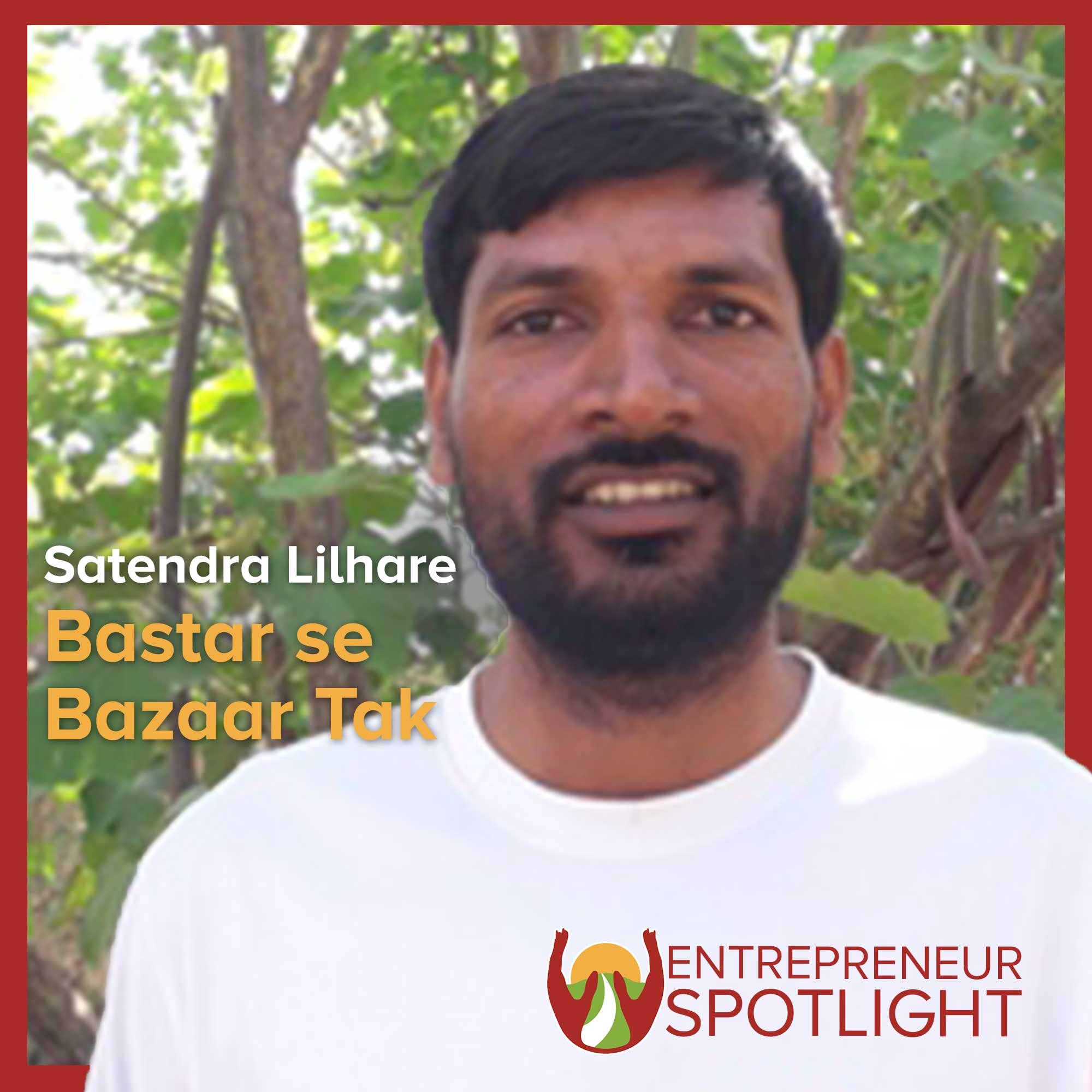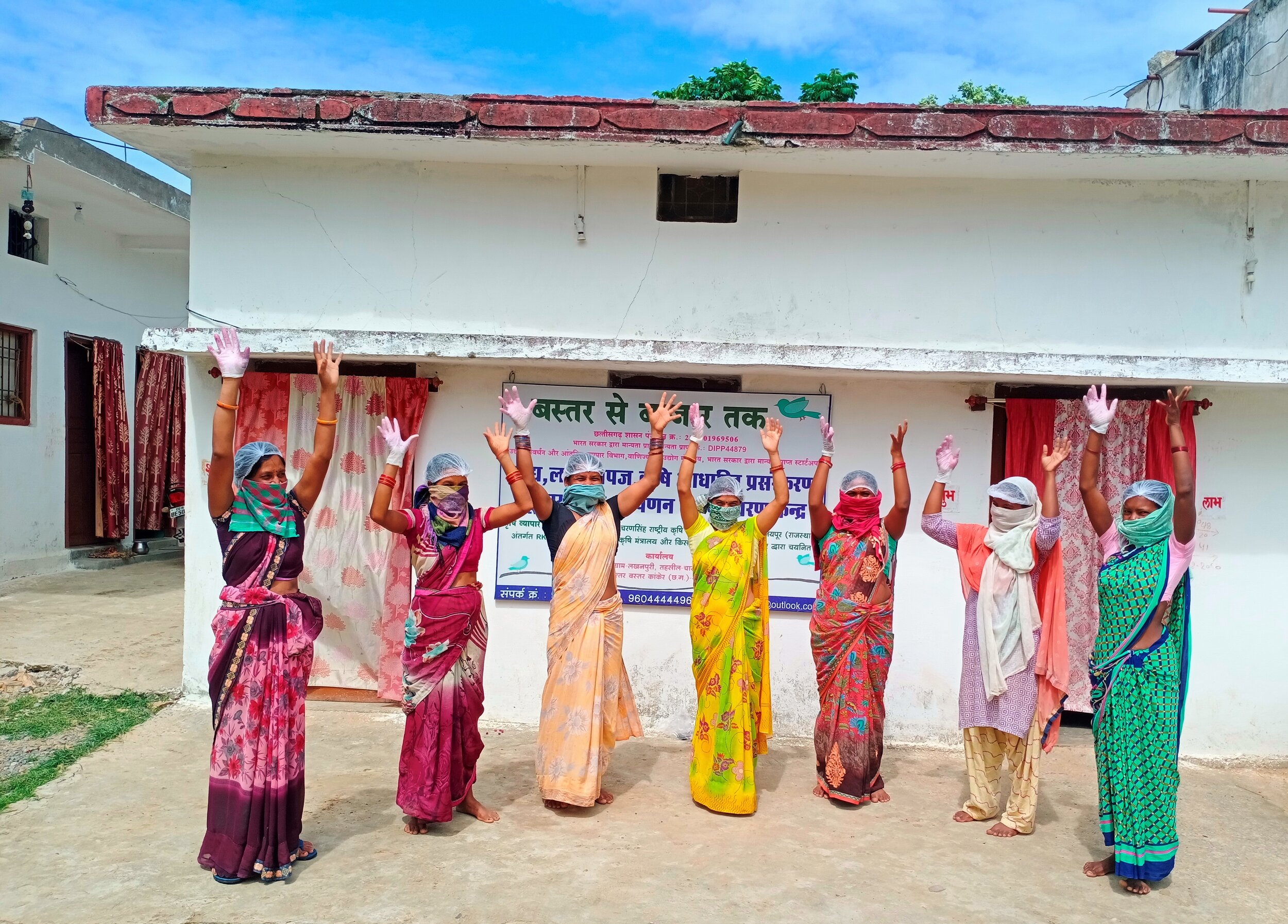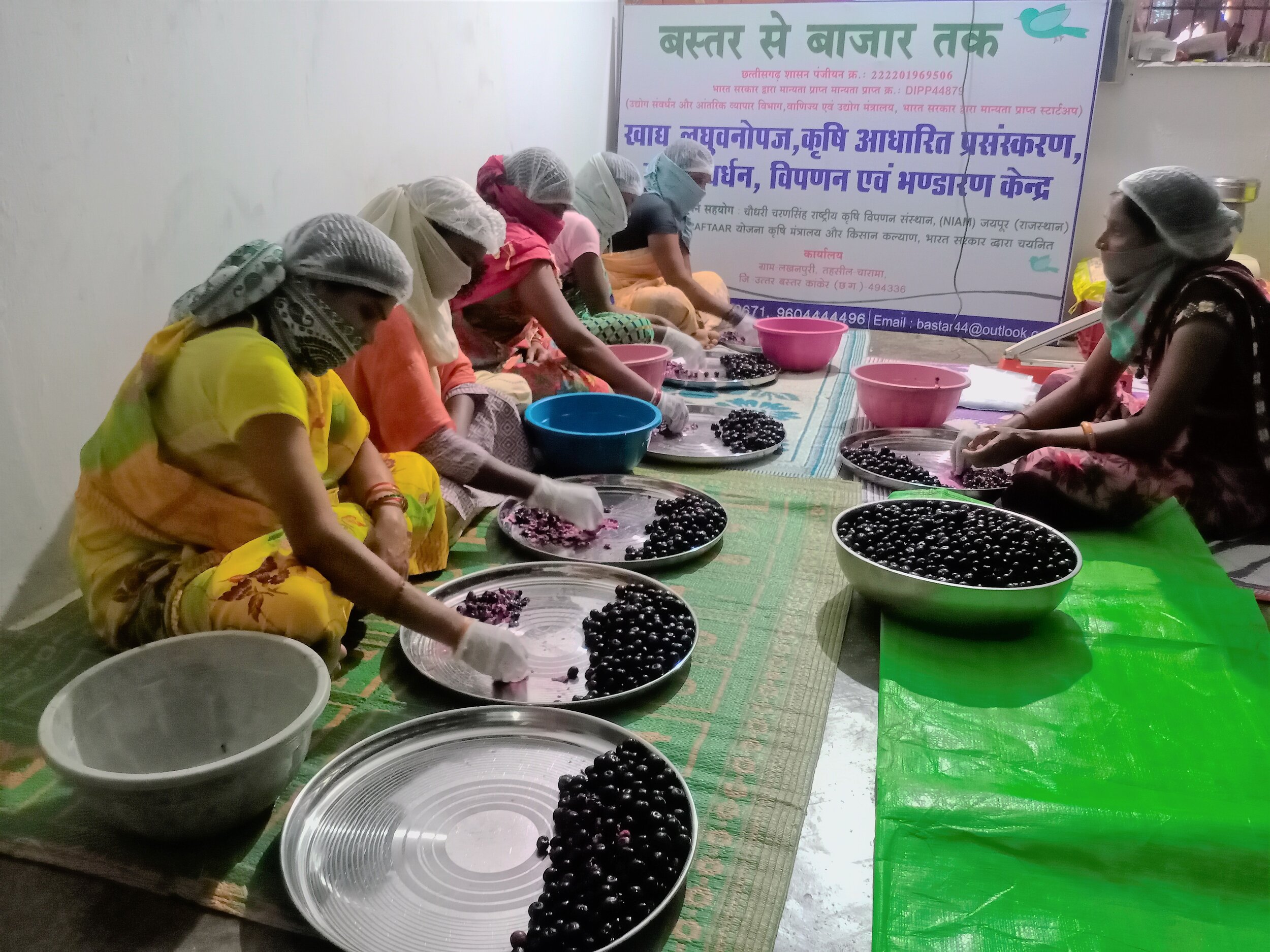Satendrasingh Lilhare, Co-Founder of Bastar se Bazaar Tak
Chhattisgarh is India’s most densely forested state and is considered one of the country’s poorest, with over 30% of the population belonging to the tribal community. In the Bastar district, which is in the southeast corner of the state, most of the tribal farmers live in rural forest areas, and their livelihoods depend upon agriculture and forest produce. However, farming, along with government rural employment schemes provide employment for only part of the year in this region.
That’s where Bastar se Bazaar Tak comes in. Founded by Haresh Kashyap and Satendrasingh Lilhare, the company is trying to fill in the gap in available work and provide additional income for farmers and forest dwellers in the Bastar region through non-farm work. The name of the company means “From Bastar to the Market,” and their mission is to supply high-quality, unadulterated, processed forest produce to urban consumers while reducing post-harvest losses for farmers.
The Bastar se Bazaar Tak team is currently working with 240 of the poorest forest-dwelling households across seven villages in the region and plans to reach 1,000 households in the remotest villages of the district in 2022.
Bastar se Bazaar Tak recently completed Upaya’s virtual 2020 Accelerator Program. The program equips early-stage entrepreneurs with tools to grow their companies and have a meaningful impact through job creation. We’re pleased to introduce Satendrasingh, the co-founder of Bastar se Bazaar Tak, in our Entrepreneur Spotlight Q&A.
Q: What are the key problems your company aims to address?
Chhattisgarh is India's most densely forest state where 44% of the area is covered under forest. In addition, the Bastar region has rich culture and diversity among the local Gondi tribes. 80% of tribal population lives in forested areas and engages with agricultural activities, and their livelihoods depend on forest produce. The first issue we aim to address is the perishability of forest produce after maturity which reduces the profitability of tribal farmers. Secondly, unemployment among youth and women. Overall, we are reducing the minor forest produce losses, enhancing the livelihoods of local forest dwelling farmers, and providing supportive and flexible employment for them.
Q: How did you become so passionate about this problem?
I visited a local ‘bazaar’, which is the primary place for tribal farmers to sell their forest produce and purchase their daily needed goods. Here I came to understand that the traders seeking forest produce were only purchasing the local Kochiya, not all the forest produce that was available. Similarly, I saw there is abundance of forest produce, but the tribal farmers were not collecting and selling that forest produce because no one is buying it. Then after having long discussions with tribal community, the idea came up from them to solve this forest produce losses problem. The idea was to convert this opportunity into employment for them by processing this forest produce and accessing the market for it.
Q: What inspired you or gave you the idea to start your company?
Since my school days, I have been passionate about social enterprise, but at that time I was not aware of where to start. After having discussions with my Mother and Aunt, they gave me liberty and freedom to do whatever I’d like in my social enterprise. I decided to first acquire the education for this and then experience in the sector. So, post my Masters’ degree, I worked with a Farmer Producer Organization for nearly three years. Yet, my dream was unfulfilled. During this time, I met two fascinating and laborious farmers, Sh. Hareshji and Mrs. Ambikaji. I shared my experience, idea, and unfulfilled dream with them, and this gave us the inspiration behind "Bastar se Bazaar tak."
Q: What has been your greatest accomplishment to date?
We have successfully piloted our initiative with Sitaphal and Jamun products with 245 smallholder farmers. We have started Bastar Se Bazaar Tak from ground-zero and now reaching 500 more smallholder farmers in nearby remote villages.
In addition to this we find our work is purposeful while making profit for the sustainability of the enterprise. We are resolving the problem of forest produce losses and at the village level, farmers support each other to reduce poverty.
Q: What has been your biggest learning as an entrepreneur?
Having worked at the grass-roots level for more than nine years, I decided to work for the community in the utmost remote geography. The sector, people, and place where we are working taught me that, when tools of development are placed in the hands of our rural people, and when their experience, energy, and wisdom is linked with the skill of committed professionals, there is nothing they cannot achieve. I learned this while working with farmer Sh. Hareshji and Mrs. Ambikaji.
Q: What is your vision for your company?
To be a successful company and reduce the forest produce losses, build the natural forest product line, and create flexible and supportive employment for smallholder farmers at an exclusively farmer-run company in North Bastar, Chhattisgarh.


















The Tribal Hermit is a social impact venture that works closely with 130+ Dhokra craft artisans from Kondagaon, Bastar, and Raigarh districts of Chhattisgarh to design, create, and sell their products.